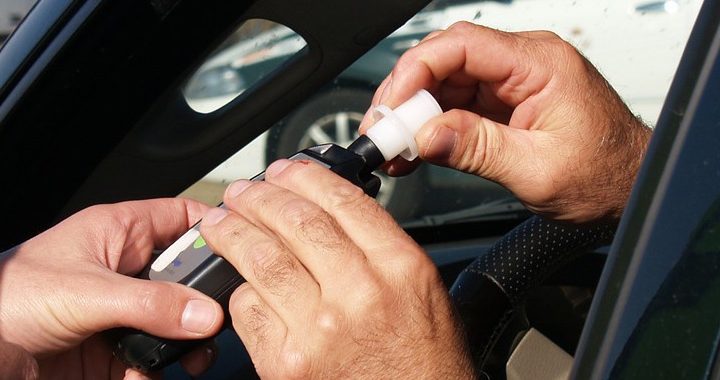Should a warrant be required to collect a breath sample when a person is arrested for DWI?
By Peter Lederman
Published in the New Jersey Law Journal
In Herman Melville’s classic short story “Bartleby, the Scrivener: a Story of Wall Street” Melville tells the tale of a Wall Street lawyer who hires a new clerk, hired to be a scrivener. His job is to copy legal documents by hand, which was the practice before the advent of modern copy devices. Bartleby initially proves very productive in producing a high volume of high quality work. One day, however when asked to proof read a document, Bartleby responds saying, “I would prefer not to.” Soon, Bartleby becomes less and less responsive to work assignments, repeatedly responding “I would prefer not to.” Eventually Bartleby performs no work at all, providing the same response “I would prefer not to”. In the end, things do not work out well for him when he is removed from the law office, where he has taken up residence and comes to his untimely demise. Frustrated and resigned to Bartleby’s fate, the Narrator sighs, “Ah Bartleby! Ah humanity!”
It is common for drivers arrested for Driving While Intoxicated to be asked to provide a sample of breath to determine their Blood Alcohol Content. Over the years of my practice, I have heard many different responses to this request. I am not sure I have heard anyone respond in the words of Bartleby “I would prefer not to.” If they would have made such a statement though, they would not be reflecting a disconnect with the world around them. Rather, these drivers would be unsure about supplying a breath sample, not knowing whether to believe the officer or Trooper who has just arrested them, about supplying the sample.
Legally, the proposition is simple. A driver’s license is considered a privilege to operate motor vehicles upon the highways of the State. That privilege can of course be suspended or revoked upon failure to comply with certain statutory enactments or administrative directives of the New Jersey Motor Vehicle Commission. Drive while intoxicated and your license is suspended. Get too many points and you are suspended. Don’t pay a fine, appear in court or comply with an administrative or court directive and puff, it‘s gone. Heck, you can lose your license if you fail to keep your child support or alimony payments up to date.
Of course, this brings us to the situation where a driver has been arrested for DWI and transported back to the State Police Barracks or police station for what is referred to in police work as “processing”. I often wonder why this term is used. Food is processed like salami and liverwurst. What’s a defendant to think?
In any case, processing a defendant involves notifying the driver of Miranda rights, which among other things, includes a right to remain silent and to have an attorney present. Good enough. Moments later however, the driver is informed they have an obligation to provide a sample of their breath to determine the content of alcohol in their blood. And oh yes, they must do so regardless of the Miranda rights to which they had just been advised. No right to call an attorney, no right to ask questions, no right to think things over in case if they are a little confused or apprehensive as to whether they can trust the officer who has just arrested and placed them in custody, inside a police station or Trooper Barracks.
The courts have made it abundantly clear that failure to respond to a request for breath samples with an unequivocal “yes”, can result in an additional charge for the offense of Refusal to provide a breath sample. This offense carries additional suspension of driving privileges, significant fines, surcharges and the like. I recently represented a defendant who was charged with Refusal when he responded to a request to provide breath samples by saying “OK” instead of yes!
All this brings us to recent consideration by the United States Supreme Court whether penalties resulting from a Refusal charge meet Constitutional muster. Several years ago, the Scotus found that police officers were required to obtain search warrants before they could cause blood draws from drivers to determine blood alcohol content, except in cases where an exigent circumstance or the defendant’s consent existed. Essentially, the Supreme Court found as a matter of privacy rights, police officers could not have needles stuck into drivers’ arms to draw blood unless and until a judge had determined that there was probable cause to justify that intrusion. This resulted from the Court’s determination that dissipation of alcohol in blood would allow for this process without destruction of evidence.
Now, defense attorneys are asking the Supreme Court to reach a similar conclusion with regard to refusals to provide evidential breath samples. Essentially, the Court will decide whether Due Process provided for in the Fourteenth Amendment prohibits punishing a driver for not providing breath samples when a Search Warrant has not been issued by a judge finding probable cause and directing that samples be provided. The rationale behind the defense argument is again, that alcohol dissipation in blood is slow and steady to the point that a driver’s privacy rights can be balanced with the State’s need to acquire evidence. Consequently, no criminal sanction would be imposed until a judge has ordered that the sample be supplied.
That the Supreme Court of the United States has agreed to even consider this issue is a triumph of our system of law, affording Constitutional rights to a disfavored, unpopular class of drivers charged with Driving While Intoxicated. Perhaps if a driver asked someday to provide a breath sample responds “I would prefer not to,” without criminal consequences, we may not have to collectively sigh as the Narrator for Bartleby. Rather, we might even be able to afford ourselves a smile and think in a different way “Ah Bartleby! Ah humanity”.
